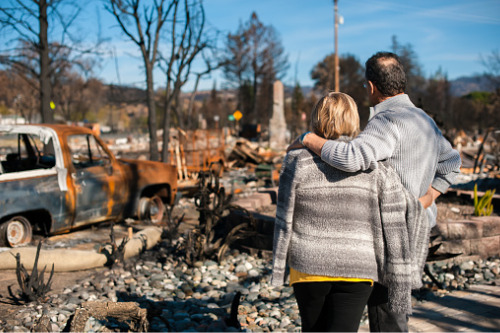

The Insurance Bureau of Canada (IBC) has released its findings on last year’s insured losses resulting from severe weather events, underscoring that 2020 was a year of record damage – not just for Canada, but also for the rest of the world.
IBC said that insured damage for severe weather events across Canada in 2020 hit $2.4 billion, citing data from Catastrophe Indices and Quantification Inc. (CatIQ).
The release offered a breakdown of 2020’s top insured damage weather events in 2020:
|
Date |
Severe weather event |
Insured damage cost per event |
|
January 10 |
Rainstorm and snowstorm Southern Ontario and Quebec |
$98 million |
|
January 31 |
BC rainstorm |
$42 million |
|
April 26 to May 3 |
Fort McMurray flooding |
$562 million |
|
June 13 |
Calgary hailstorm |
$1.3 billion |
|
July & August |
Central and Southern Alberta storms |
$221 million |
|
November 15 |
Ontario windstorm |
$88 million |
IBC also noted that with a total loss of $2.4 billion, 2020 is ranked as the fourth highest loss year. A list of the top 10 highest loss years was compiled by the bureau in its release:
|
Rank |
Year |
Total loss |
Notable severe weather event |
|
1 |
2016 |
5.261 |
Fort McMurray, Alberta, fire |
|
2 |
2013 |
3.418 |
Alberta and Greater Toronto Area floods |
|
3 |
1998 |
2.494 |
Quebec ice storm |
|
4 |
2020 |
2.388 |
Fort McMurray, Alberta, flooding and Calgary, Alberta, hailstorm |
|
5 |
2018 |
2.113 |
Multiple events: Ontario and Quebec rainstorms and windstorms |
|
6 |
2011 |
1.740 |
Slave Lake, Alberta, fire and windstorm |
|
7 |
2012 |
1.456 |
Calgary, Alberta, rainstorm |
|
8 |
2019 |
1.334 |
Multiple events |
|
9 |
2005 |
1.299 |
Ontario rainstorm |
|
10 |
2017 |
1.255 |
Multiple events |
It was not just Canada that saw a surge in weather losses last year. According to Munich Re, global losses from natural disasters reached $270 billion – a figure that is significantly higher than previous years, the reinsurer pointed out.
“Canadians continue to experience accelerating financial losses from climate change. While acknowledging the importance of a resilient recovery, the federal government lacks any national plan to protect Canadians from floods, fires, windstorms, and hail,” commented IBC vice president of federal affairs Craig Stewart on the findings of the report.
“For all of its work on reducing future climate threats, too little attention is being paid to the losses Canadians are facing today due to past inaction.”
